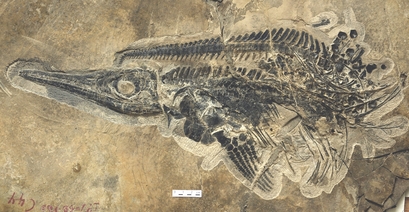A giant cache of nearly 20,000 fossil reptiles, shellfish and a host of other prehistoric creatures unearthed from a mountain in China is now revealing how life recovered after the most devastating mass extinction on Earth.
This research could help point out which species might be more or less susceptible to extinction nowadays, and how the world might recover from the damage caused by humanity, scientists added.
Life was nearly completely wiped out approximately 250 million years ago by massive volcanic eruptions and devastating global warming. Only one in 10 species survived this cataclysmic end-Permian event.
Much was uncertain regarding the steps life took to piece itself back together after this disaster, or even how long it took. Now the clearest picture yet of this recovery has been discovered by a team of researchers, who excavated away half a mountain in Luoping in southwest China to unearth thousands of marine fossils, the first fully functional ecosystem seen after the end-Permian.
"The pattern and timing of recovery can tell us something about how life today might recover after human-induced crises," said researcher Michael Benton, a vertebrate paleontologist at the University of Bristol in England.
A trove of fossils
The 50-foot-thick (16 meters) layer of limestone that held these fossils dates back to when south China was a large island just north of the equator with a tropical climate. A smattering of fossil land plants suggest this marine community lived near a conifer forest.
Read more at Yahoo! News

No comments:
Post a Comment